The Economics and Statistics Division maintains archives of previous publications for accountability purposes, but makes no updates to keep these documents current with the latest data revisions from Statistics Canada. As a result, information in older documents may not be accurate. Please exercise caution when referring to older documents. For the latest information and historical data, please contact the individual listed to the right.
<--- Return to Archive
For additional information relating to this article, please contact:
August 24, 2023CANADA FINANCIAL STATISTICS FOR ENTERPRISES, Q2 2023 In Q2 2023, Canadian enterprise net income before taxes (seasonally adjusted) declined by $3.27 billion from the previous quarter to $163.78 billion. Net income before taxes was down $5.38 billion for non-financial corporations to $114.81 billion and was up $2.10 billion to $48.97 billion in finance and insurance corporations.
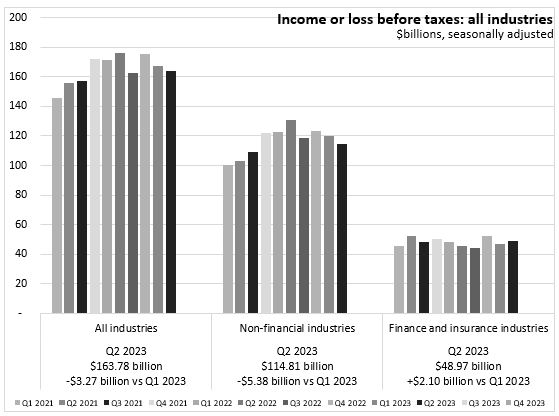
Among resource extraction industries, there was a small gain for agriculture, forestry fishing. Oil and gas extraction and mining net income was down with disruptions to production from wildfires in Western Canada. Mining net income was down on lower copper and iron ore prices driven by slowing global activity.
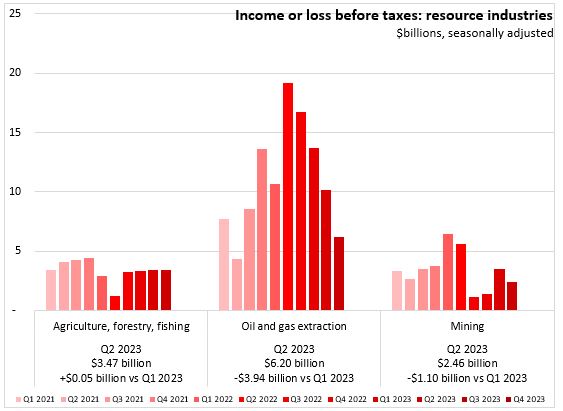
Construction net income before taxes edged up and utility net income edged up.
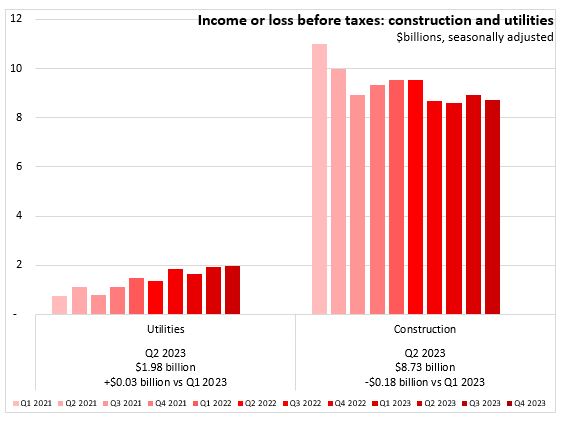
Within manufacturing industries, food and soft drink manufacturing net income before taxes declined, as did net income for alcohol/tobacco/cannabis manufacturers.
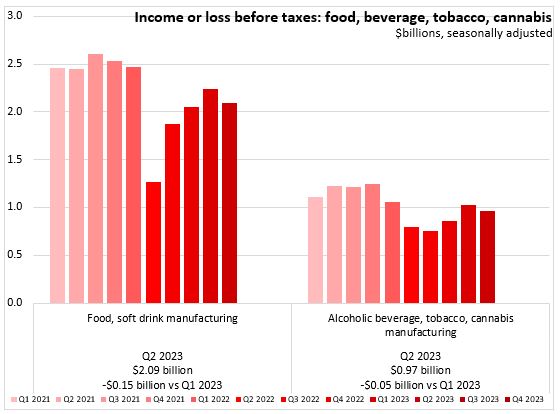
Among primary processing manufacturers, net income continued to decline in forest products. Net income before taxes also fell for petroleum and coal product manufacturing. Net income moved up for primary/fabricated metal manufacturers.
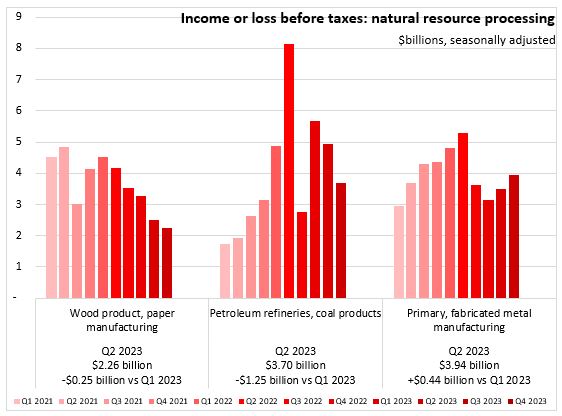
In Q2 2023, there were declines in net income before taxes for pharmaceutical, soap, agriculture chemical, chemical manufacturers and plastic and rubber manufacturers. Non-metallic manufacturing edged up in the latest quarter.
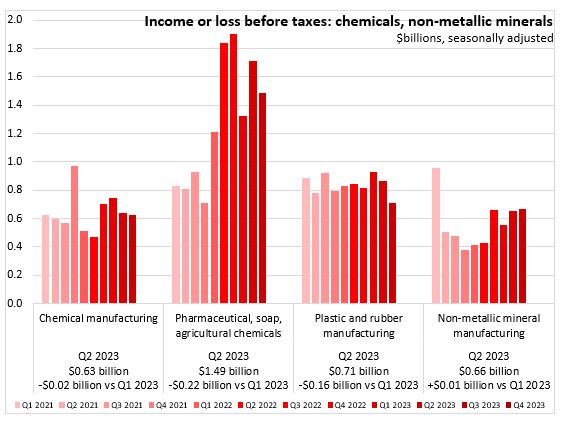
After a positive Q4 2022, net income before taxes for motor vehicle manufacturers has been negative in 2023. There was an increase in net income for motor vehicle parts manufacturers as well as a small increase in net incomes for aerospace, rail and ship manufacturers.
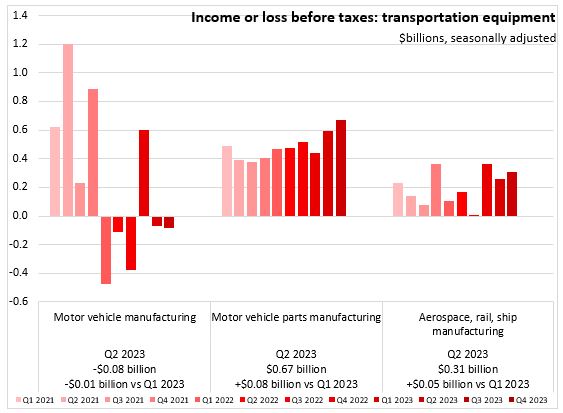
Net incomes were up among Canada's clothing, textile and furniture manufacturers and computer and electronics manufacturers.
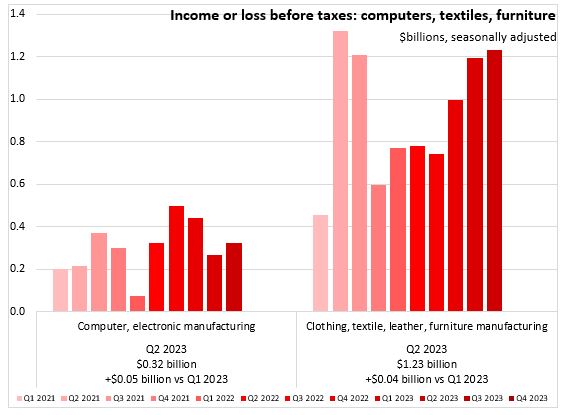
Net incomes before taxes in wholesale trade were up with small increases in building materials wholesalers, machinery and equipment wholesalers, and other wholesalers and essentially no change among motor vehicle and parts wholesalers.
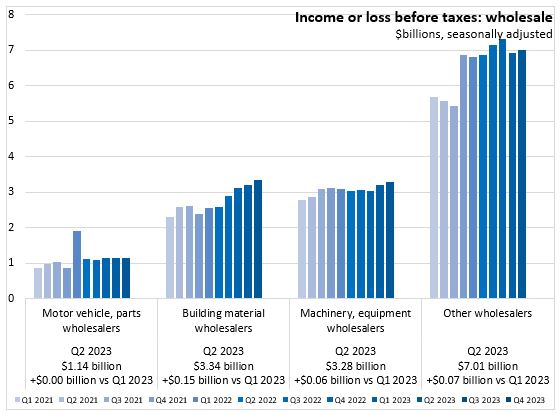
Retail net income was up for all subsectors, with the largest gain in motor vehicle and parts dealers.
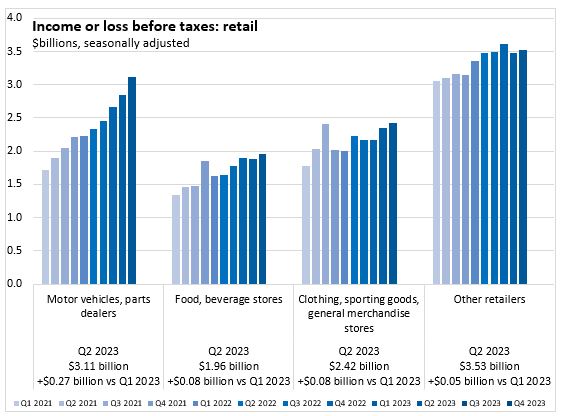
Net income for transportation and warehousing businesses were up on an increase in transportation, postal and courier companies and warehousing , more than offsetting small decrease in pipelines.
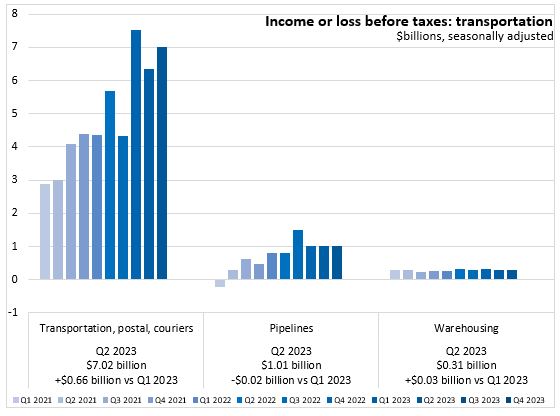
Net income edged up for broadcasting and content creation but fell for telecommunications providers due to increased depreciation and amortization expenses.
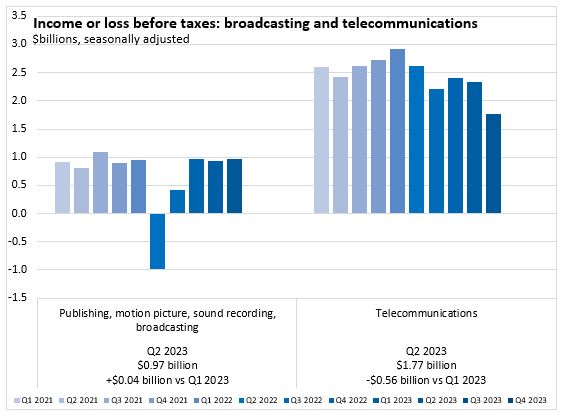
Net incomes before tax in real estate as well as rentals and leasing improved last quarter.
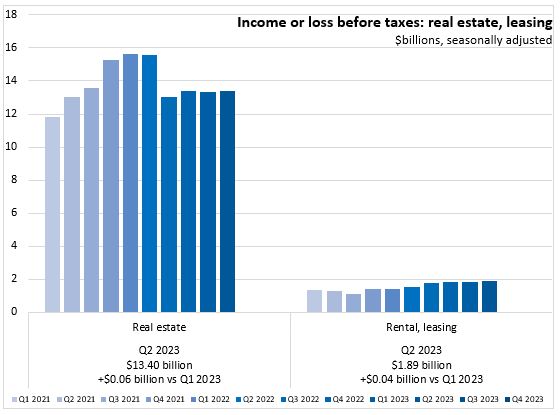
Net incomes edged up for professional/technical service and personal/repair services while edged down for administrative, support and waste management services.
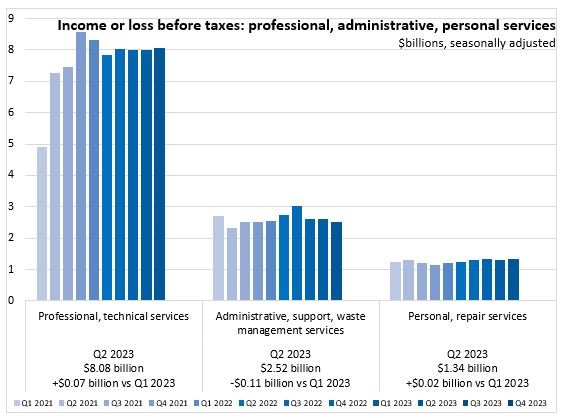
Net incomes were up for businesses in health, education and social assistance as well as in arts, recreation, accommodation and food services.
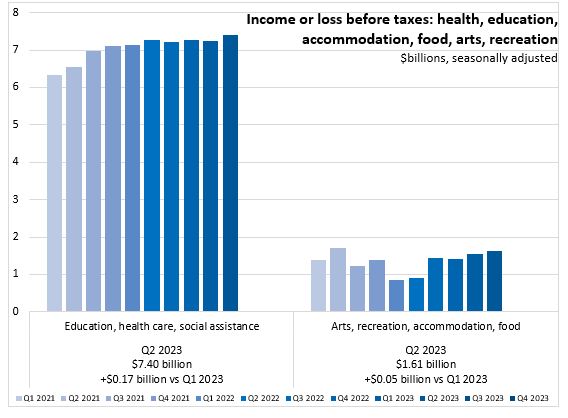
Both banking and central credit unions reported gains in net income before taxes. Net income for local credit unions continued to decline.
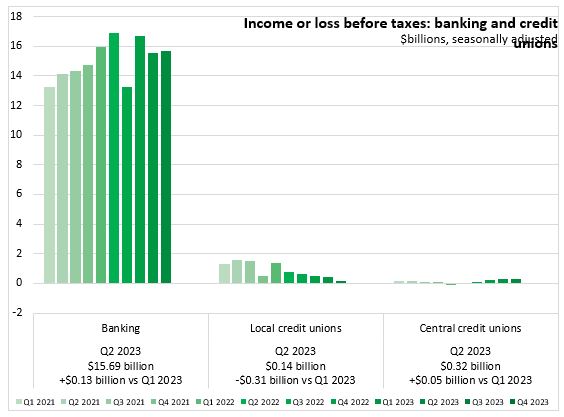
Net incomes moved higher for credit card and consumer lending companies. There were also smaller gains for other non-depository credit intermediation and financial transactions processing and loan brokers.
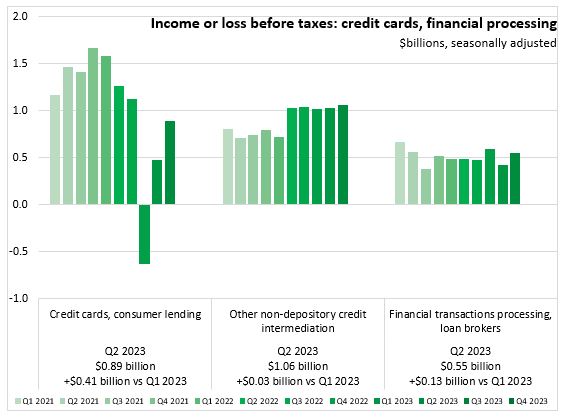
The net income increase for miscellaneous financial intermediation offset small declines in securities/commodity contracts, brokerage, and portfolio management.
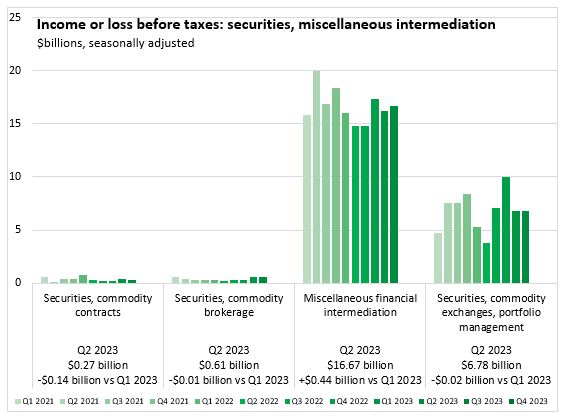
Net incomes expanded for life, health and medical insurance carriers on lower expenses. Property and casualty insurance declined $0.53 billion on higher claims reflecting impacts of wildfires in Atlantic Canada and ice storms and floods in Ontario and Quebec. Insurance agencies/brokerages edged up in Q2 2023.
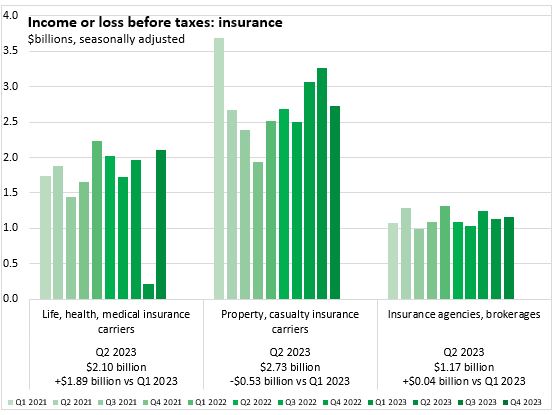
Source: Statistics Canada. Table 33-10-0226-01 Quarterly balance sheet and income statement, by industry, seasonally adjusted (x 1,000,000)
<--- Return to Archive